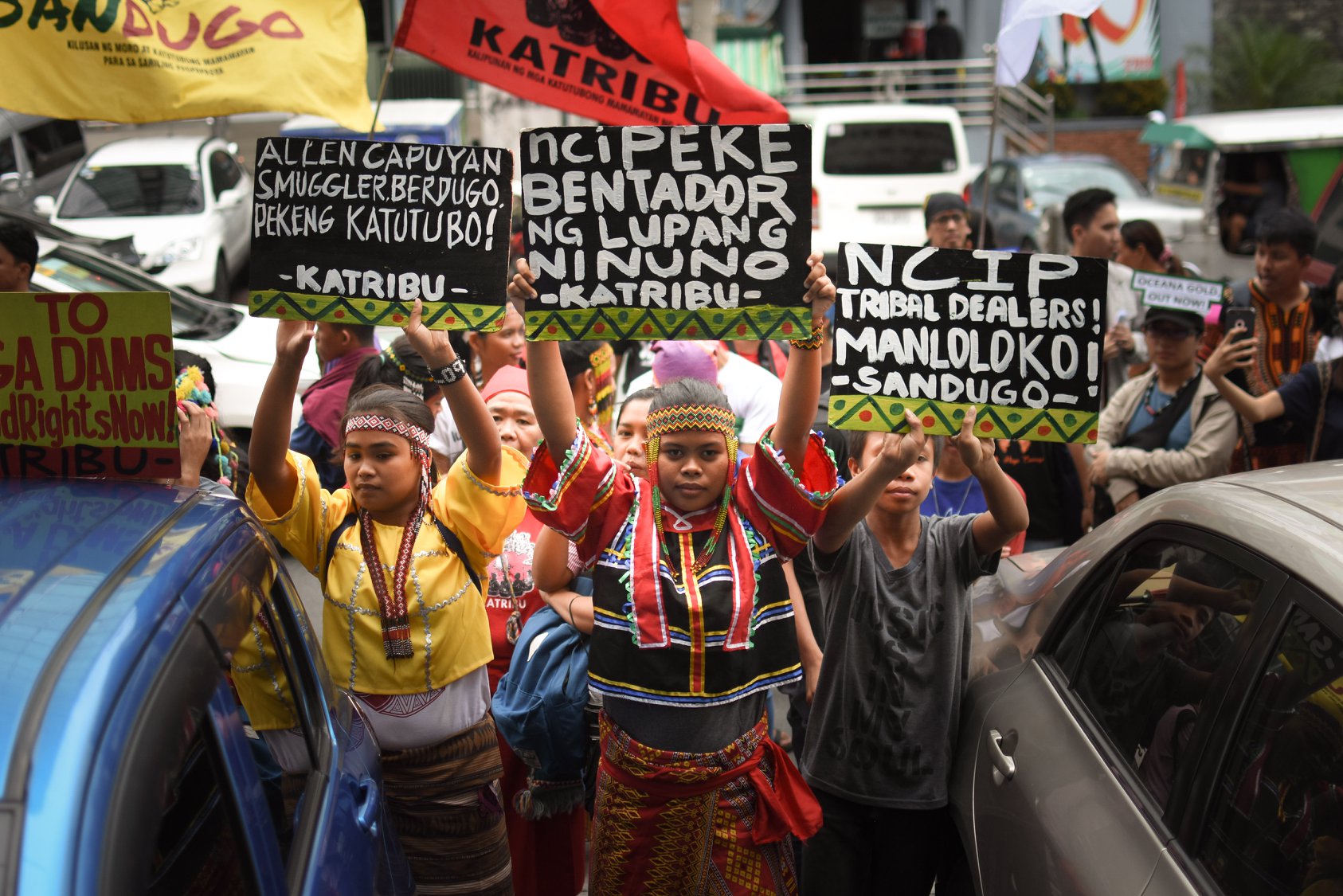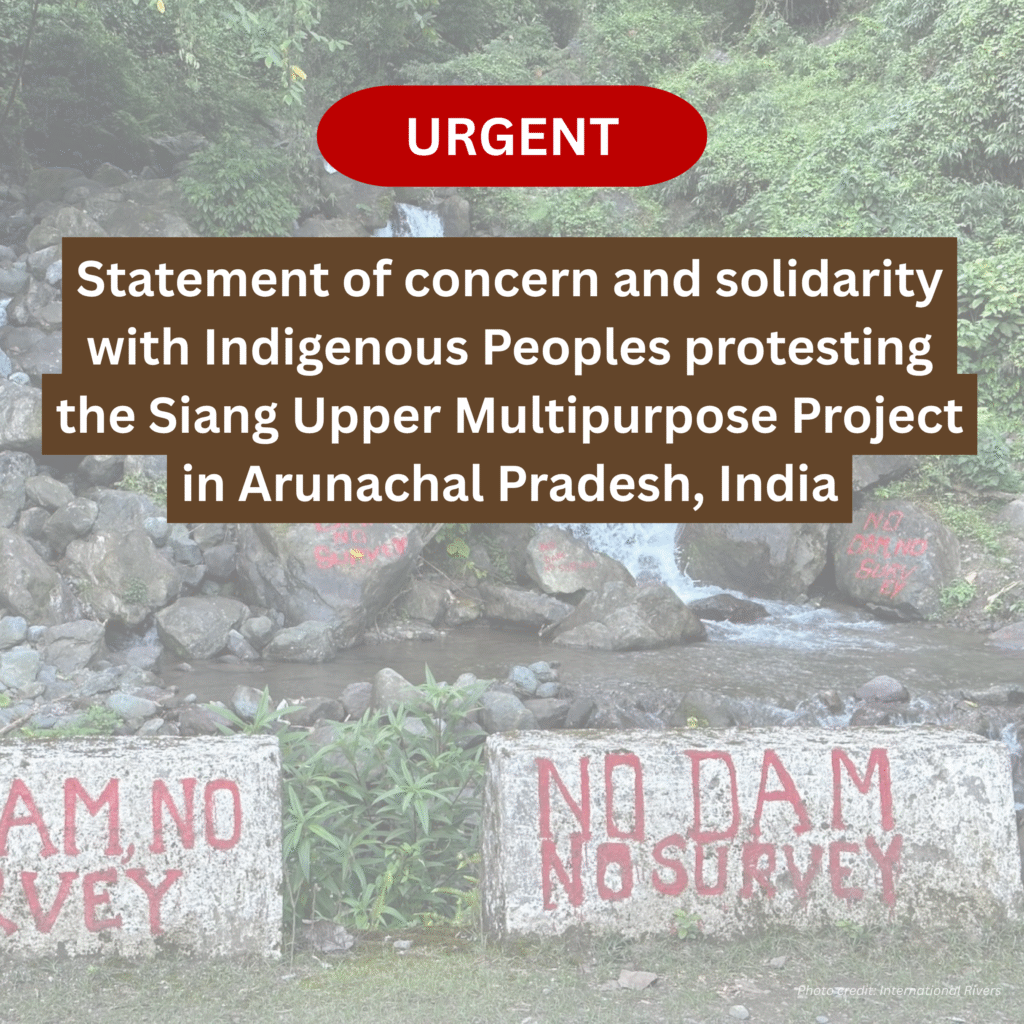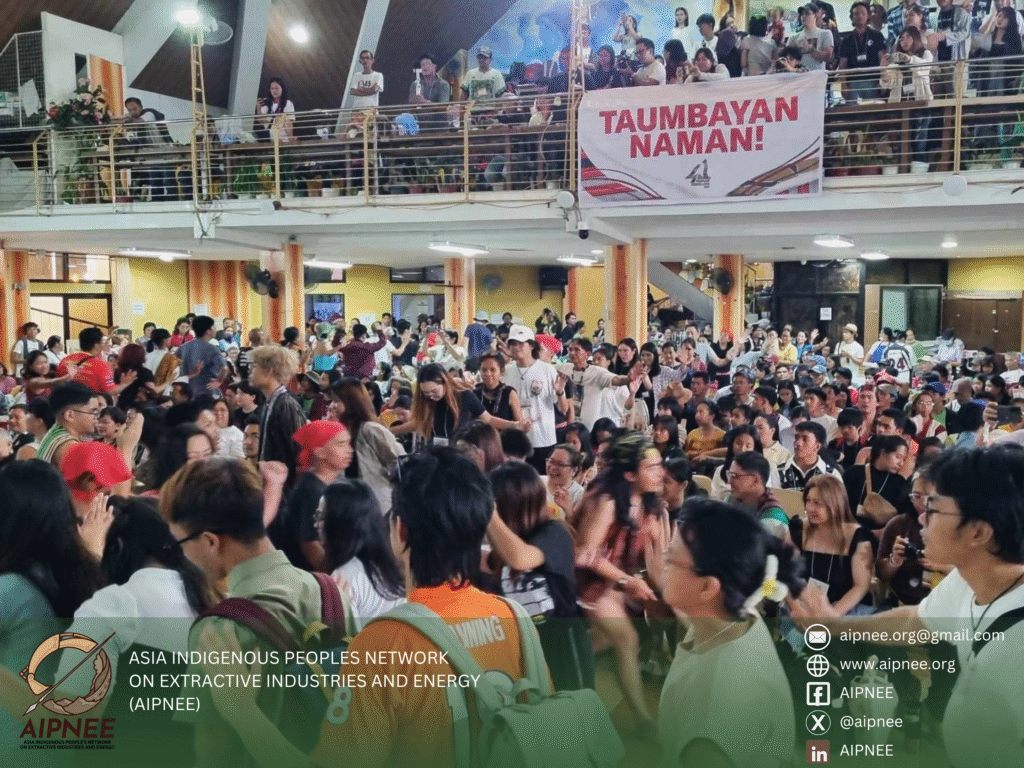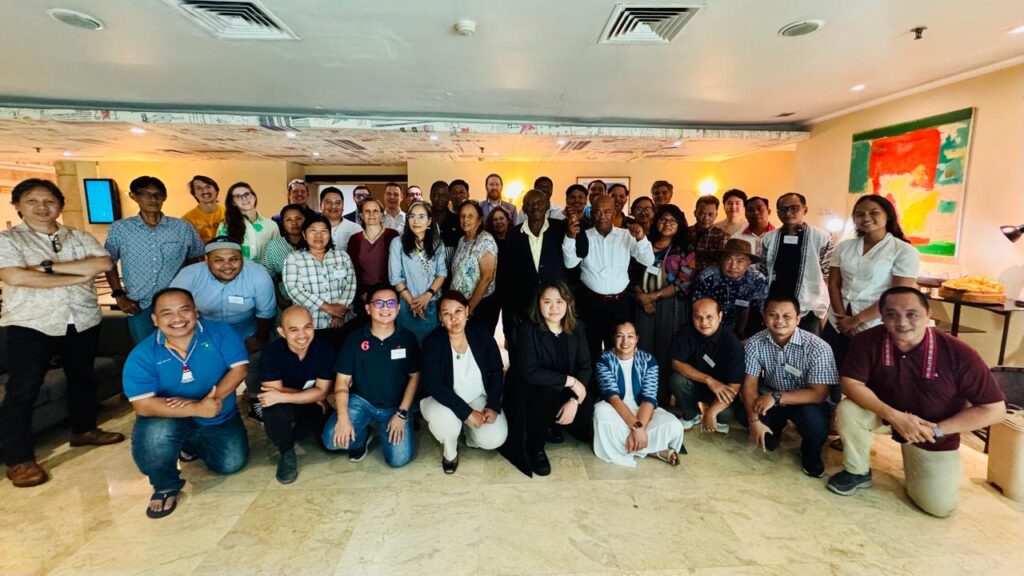Asia Indigenous peoples Network on Extractive Industries and Energy (AIPNEE) is one with the world in commemorating International Day of the World’s Indigenous Peoples. Today, we salute all indigenous peoples who have persevered in their struggles for the respect and defense of our collective rights to ancestral land, resources and self-determination.
While we applaud our gains, we equally recognize our losses and challenges. The lessons we learned from this historic struggle are our weapons as we move forward in our quest for true freedom, a healthy natural environment, and lasting peace. These are the fundamental elements for self-determination and sustainable development from the perspective of indigenous peoples.
As we advance our struggles, we confront more difficult and life-threatening challenges such as the plunder of our resources and the aggressive implementation of extractive and destructive development projects in our territories. Indigenous peoples are repeatedly victims of human or people’s right violations in various forms such as harassment, vilification, abduction, rape, incarceration for fake charges, torture, extra-judicial killing, bombing, burning of villages, massacre, etc. At worst, ethnocide and genocide could already be happening among some indigenous groups.
Today, these challenges have worsened to a level beyond expectation as we experience the impact of the COVID-19 pandemic. Again, among the most affected are indigenous peoples and the poor majority of the global population. The imposition by States of extreme restrictions in mobility has prevented people from working for their daily subsistence, especially with the closure of many establishments. Medical, economic and food relief support from the government are limited or none at all. Many people are experiencing hunger and mental trauma that have pushed some to commit suicide.
Ironically, transnational corporations engaged in extractive industries seem undisturbed and exempted from restrictions under the COVID-19 quarantine. Corporations continue to operate their businesses especially in the mining and energy sectors. In Asia, the pandemic is being used to further oppress the people with the imposition of various militarist policies and the implementation of anti-people development projects, which indigenous peoples strongly oppose.
In the Philippines, mining-affected people of Didipio, Nueva Ecija were locked down in their homes and communities to stop the spread of the pandemic. Meanwhile, OceanaGold Mining Company insisted on operating despite the expiration of its FTAA permit on June 20, 2019. The mining company aided by policemen, had sneaked into the mine-site to bring in fuel supplies breaking through the community barricade with a fuel tank truck. Community members who strongly protested were even charged for violation of quarantine restrictions.
In Myanmar, on July 2, 2020, a landslide at a jade mine in Hpakant, Katchin state, north Myanmar killed at least 126 mine workers and injured54 others. Reports say that many large jade mine companies are owned by families of former generals, army, cronies, and drug lords. The Katchin minority people of Myanmar have been opposing the Jade mine for decades already.
In Northeast India, an oil spill happened on May 27, 2020 at Baghjan Oilfield of India Limited (OIL) in Tinsukia district in Assam state causing a fire that lasted for 2 weeks. Around 3,000 (1,610 families) people were affected and forced to evacuate. Furthermore, the oil spill badly damaged two biodiversity areas (Maguri-Motapung wetland and Dibru-Saikhowa National Park) where at least 36 species of mammals including feral horses and at least 382 species of birds are found. It was also reported that this is not the first disaster incident at Baghjan Oilfield. In February this year, a blast at the oil pipeline had caused the Burhi Dihing river to catch fire.
In Indonesia, land use conversion for commercial purposes is continuing. 15 million hectares of rainforests on ancestral lands plus another 15 million hectares are being converted into oil palm plantations. In addition, more than 93 million hectares of land are covered by mining concessions, part of which are lands owned by indigenous peoples.
The cases mentioned here illustrate how the tandem of transnational corporations and governments with their armed forces in Asia are advancing
their businesses for huge profits- amid the COVID-19 pandemic. Adversely affected areindigenous peoples, their territories, environment and biodiversity. Now more than ever, we indigenous peoples should act as one in confronting these challenges. We need to persevere in fighting for our rights to land and self-determination, as we strengthen our solidarity with other oppressed sectors around the globe for the common good of the people and the planet.
Long live Indigenous Peoples in Asia! Log live Indigenous Peoples of the World! Long live International Solidarity!




